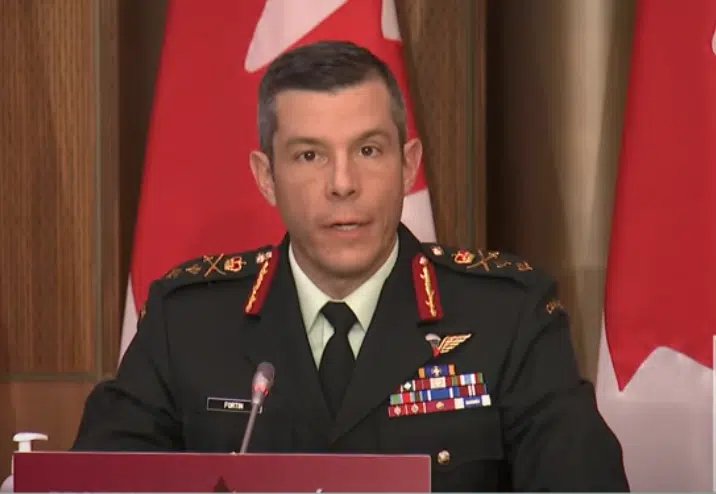Transporting vaccines across a nation as large as Canada comes with lots of challenges, but it will get easier.
That was the message shared at today’s federal briefing on COVID-19 vaccine distribution.
With the federal government approving the Pfizer-BioNTech’s COVID-19, Deputy Chief Medical Officer Dr. Howard Njoo says Canada expects to receive 249,000 doses by year’s end.
Vaccines will be distributed per capita, meaning each province will receive a percentage of vaccines in coordination with their percentage of the national population.
Major General Dany Fortin, who is heading the logistics behind vaccine distribution, says he expects the first shipment from Belgium to arrive this Friday. He says some Canadians could get vaccinated as early as next week.
Pfizer will be shipping their vaccines directly to 14 sites across Canada that are set up to handle the vaccine, which must be kept at extremely cold temperatures (between-80 C and -60 C).
“We’re undertaking a mobilization effort of massive proportions,” he said.
“Never in modern memory have we seen such an unprecedented level of collaboration and cooperation. It really makes me proud to be a Canadian and proud to serve,”
Collaborative work will be very important in the coming weeks, as made evident by some of the challenges already facing vaccine distribution.
Dr. Njoo says for the Territories it was deemed unfeasible.
“We were asked by them to not send the Pfizer vaccine, but rather to wait until a vaccine that is easier to transport is available,” he said.
In Quebec, where a large number of cases are in long term care homes, the government is working on distributing vaccines directly on-site to avoid needing more cold storage space for the vaccines.
Problems like these will also be alleviated by the arrival of more vaccines currently in trials, according to Major General Fortin.
“As more vaccines gain approval it gets easier, and by the spring/summer we anticipate having a vaccine that doesn’t require cold storage,” he said.
The first vaccines available will be prioritized for long-term care home residents and frontline medical workers, with Dr. Njoo estimating that non-priority vaccinations will not start until Spring 2021.




